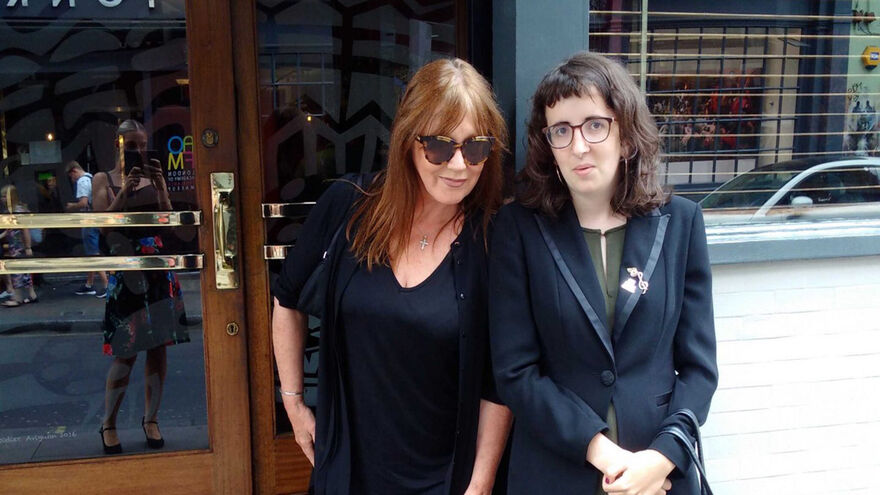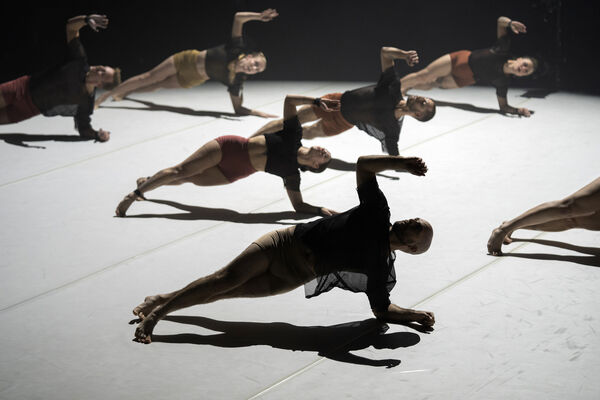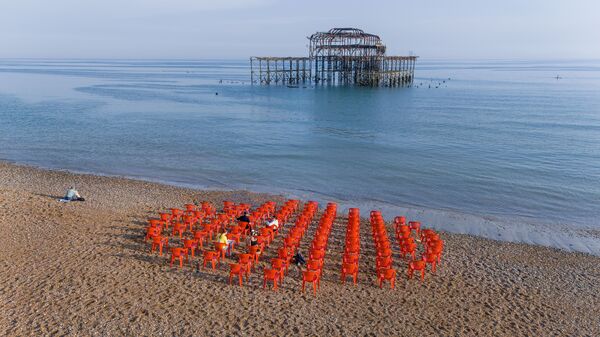
Lydia Wilkins: How to make Events Accessible and Autism-Friendly
Recently we spoke to Lydia Wilkins, a journalist and occasional blog writer who was diagnosed with autism just before her sixteenth birthday. Hearing from Lydia about the various changes events organisations could implement to make their performances more accessible to those with invisible disabilities, like Autism, mental health issues, and physical handicaps, was enlightening. Lydia feels strongly about the progression events organisations need to be making to accommodate those with disabilities. Here are her thoughts on the changes that should be implemented to allow equal access for everyone:
'Two months shy of my sixteenth birthday I was diagnosed with Aspergers Syndrome - now referred to as Autism Spectrum Disorder. To me it was simply just a label - literally nothing had changed - it was just another word to describe myself.
Even though that was just over four years ago, at times I still find attending events a bit of a struggle sometimes. I love attending concerts - Queen and Adam Lambert anyone? - as well as plays; I regularly review exhibitions and other artistic shows. I love going to “In conversation with..” events, often talking to my favourite writers during or after.
But noise can be an issue for me, as I lack a filter for it. For this reason, I looked at the adjustments venues could make for people with invisible disabilities, such as myself and others.
Relax The Atmosphere
Sometimes venues can have a very regimented atmosphere; you have to be in one place, you can’t move, and sometimes social expectations are not necessarily obvious. (I was once tutted at, because I made a dash for the loos mid-performance, thinking I was going to be sick.) The more you try not to rattle your delicious confectionary, the louder it seems to be.
The regimented atmosphere could be more relaxed - or at least the expectations made more obvious. Brighton Festival offers relaxed performances - meaning that there’s an open-door policy, a ‘safe space’ available, changes made to lighting, and visual stories are available.
If you’re attending a performance, be kind in your criticism; someone may be perceived as misbehaving, but they may not necessarily be behaving like that deliberately. This might actually be their means of coping with an overwhelming experience.
(Above: Another Star to Steer By offers a Relaxed Performance)
Cover All Ages
Autism does not stop at eighteen. It does not stop at twenty-one, either. As I’ve grown older, I have seen more adjustments be made, such as at cinemas; the only thing is, typically they cover only up to a certain age.
As an adult, I quite like the cinema - but sometimes, there aren’t Autism-friendly screenings for a film I wish to see. But they are for a CGI animation for people under the age of eighteen.
If you have a variety of performances for various ages, make sure accessibility is available for all of them. While it’s amazing that accessible performances and events are becoming more commonplace, accessibility needs to be for everyone.
Normalise Anything Tactile
Sometimes aides are used while at a performance; I quite liked having a purse in my bag that changed colour, thanks to the sequins on it (you swiped your hands up and down). Many case studies show that when autistic people have various aides with them while going out - such as fiddle pencils, fidget spinners or dice, particular toys, etc. they feel more comfortable.
Normalising people bringing these aides (or even providing them) could be really useful; some may feel they’re being stared at, such as if they’re stimming. Brighton Festival offers Touch Tours, which allow for ‘tactile introductions to the set, costumes, props, instruments - and even some of the actors or musicians - before or after the show.’
(Above: A Midsummer Night's Dream offers Touch Tours before the performance)
Make Print Dyslexia Friendly
I have a friend who has Dyslexia; at times they struggle, simply because the type may not necessarily be clear enough. If you produce materials such as tickets, menus, programmes, why not make them Dyslexia-friendly?
Have A Safe Space
Safe spaces could be useful for many people with a variety with invisible disabilities; for me, noise can be incredibly overwhelming.
Lets try something; wherever you are reading this, what can you hear? Within a reasonable distance, you may hear a keyboard tapping (if you’re at work), a murmur of voices, possibly a phone ringing. Now, open that wider; can you hear the chairs scraping, voices in the room, the birds outside singing? This is all the while being aware of the change in flickering lights, the doors opening and closing, the shuffling of people moving about.
While at theatres, or concerts, there is so much noise; I lack a filter for it. It’s difficult to deal with, and once it gets to a certain point, it can lead to a meltdown. I would love it, personally, if venues had a ‘safe space’ - somewhere which is quiet, away from the hubbub, just for me to calm down.
(Above: Distorted Constellations features an 'antesensory chamber' designed for neurodivergent people to have a calm place of retreat)
Train Staff To Be More Aware
At times I have thought that staff could have better awareness of invisible disabilities; to give an example, at times when someone has found out I am Autistic, they automatically raise their voice. They become loud and patronising while talking to me – neither of which are helpful or necessary adjustments.
Why not allow someone with an invisible disability to be involved with the training?
To find out more about access at Brighton Festival visit our Access Page.
Read more from Lydia on her blog Mademoisellewomen.com



